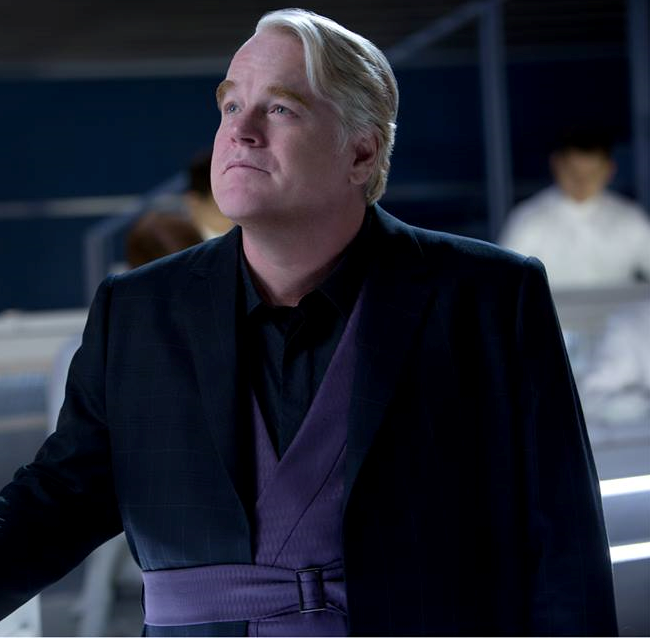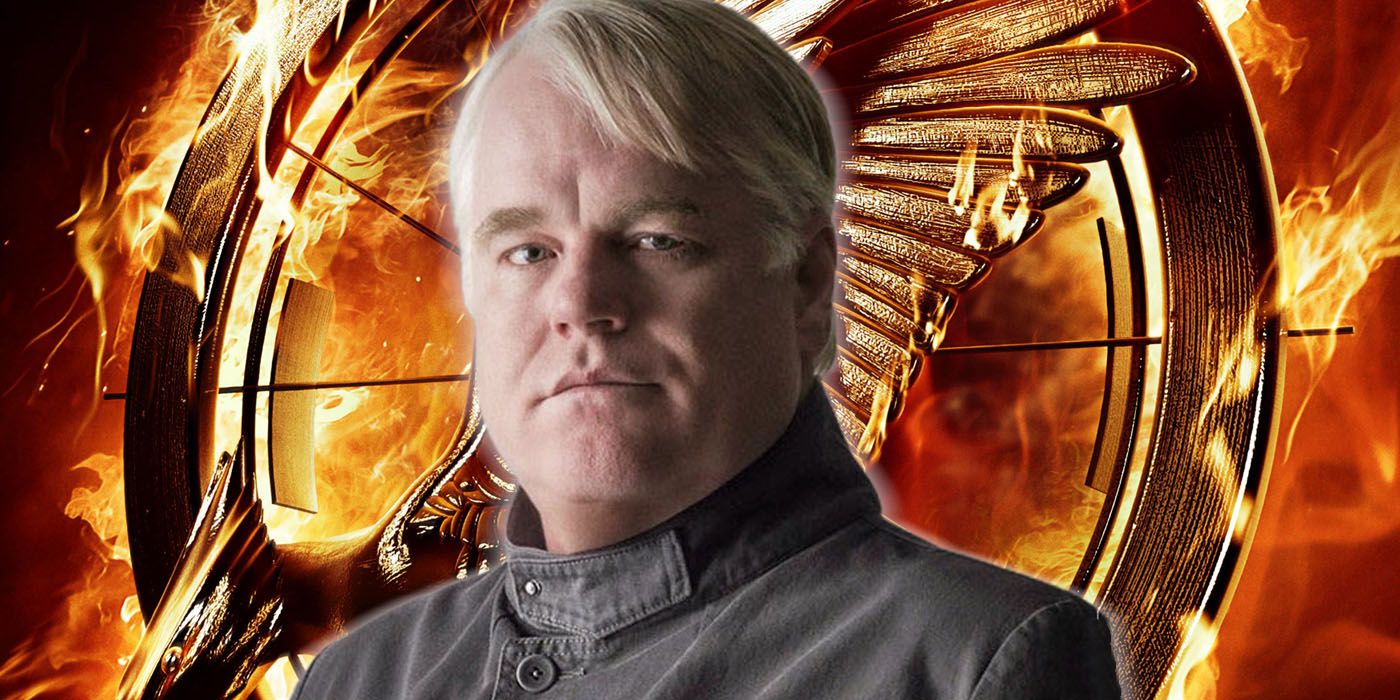The Enigma Of Plutarch Heavensbee: Power & Moral Ambiguity
In the sprawling, oppressive world of Panem, few characters navigate the treacherous waters of power and rebellion with the cunning and complexity of Plutarch Heavensbee. Initially introduced as the Head Gamemaker for the 75th Hunger Games, a position he took over from Seneca Crane, Plutarch quickly reveals himself to be far more than a mere orchestrator of death. He is a master manipulator, a political strategist, and ultimately, a pivotal figure in the rebellion against the Capitol. His journey from Capitol loyalist to a commander of District 13’s rebel forces makes him one of Suzanne Collins's most fascinating and morally ambiguous creations, embodying the intricate dance between control and liberation.
This article aims to delve deep into the multifaceted character of Plutarch Heavensbee, exploring his background, his pivotal roles as both Gamemaker and rebel leader, his crucial relationships with key figures like Katniss Everdeen and Haymitch Abernathy, and the enduring legacy he leaves within the dystopian narrative. We will unravel the layers of his personality, his strategic genius, and the ethical dilemmas inherent in his actions, providing a comprehensive understanding of why this enigmatic figure remains so compelling to audiences worldwide.
Table of Contents
- Unveiling Plutarch Heavensbee: A Biographical Sketch
- The Mastermind Behind the Arena: Plutarch as Head Gamemaker
- The Architect of Rebellion: Plutarch's Double Game
- Relationships and Dynamics: Katniss, Haymitch, and Beyond
- Moral Ambiguity and Complexity: The True Nature of Plutarch Heavensbee
- The Legacy and Future: Plutarch's Enduring Impact
- Plutarch Heavensbee: Personal Data & Key Information
- Why Plutarch Matters: A Deeper Dive into Dystopian Leadership
Unveiling Plutarch Heavensbee: A Biographical Sketch
To truly understand the intricate character of Plutarch Heavensbee, one must first explore his origins and formative years within the Capitol. His journey from a privileged background to a central figure in Panem’s political and revolutionary landscape is as complex as the society he inhabits.
Early Life and Capitol Roots
Plutarch Heavensbee was born in the Capitol in 26 ATT (After the Treaty of Treason), placing him firmly within the elite echelons of Panem’s ruling city. As a native of the Capitol, he was privy to its opulence, its political machinations, and its deeply ingrained class structures from birth. His upbringing undoubtedly shaped his understanding of power dynamics and the fragility of the Capitol's control over the districts.
He was a student of the Academy, a prestigious institution much like his uncle, Hilarius Heavensbee, who also taught there. Hilarius, despite his family's extreme wealth, often felt oppressed and bemoaned his assignments, such as mentoring a tribute from a poorer district. This familial connection suggests a lineage steeped in Capitol tradition and perhaps a subtle undercurrent of dissatisfaction even among the privileged. It is noted that Plutarch himself was inspired by Barley Mayes' "Signs of Defiance" in the 61st Hunger Games, indicating that his rebellious leanings may have been cultivated long before the events of Katniss Everdeen's era, hinting at a deep-seated desire for change that predates his public persona.
The Ascent to Gamemaker
Plutarch's rise through the ranks of Capitol society culminated in his appointment as the Head Gamemaker for the 75th Hunger Games, the crucial Quarter Quell. This position was previously held by Seneca Crane, who met a grim end for allowing both Katniss and Peeta to survive the 74th Games. Plutarch's selection for such a high-stakes role suggests a reputation for loyalty, ingenuity, and a willingness to enforce the Capitol's brutal will. When he was first introduced to audiences in *Catching Fire*, he was widely perceived as thoroughly on President Snow's side, a loyal servant of the regime. This initial perception was crucial to his later success as a double agent, allowing him to operate within the Capitol's inner circle without immediate suspicion.
The Mastermind Behind the Arena: Plutarch as Head Gamemaker
As the Head Gamemaker for the 75th Hunger Games, Plutarch Heavensbee was responsible for designing and executing the most brutal and strategically complex arena in the history of the Games. This Quarter Quell was designed not just to eliminate tributes, but to break the spirit of rebellion that Katniss Everdeen had ignited. His genius for manipulation and spectacle was on full display, even as he secretly worked to undermine the very system he appeared to serve.
Interestingly, Plutarch is first seen in *The Hunger Games* (the first movie/book) as an anonymous character. During Katniss Everdeen's private session with the Gamemakers, she becomes enraged when they pay her little attention, preferring to feast on a roasted pig. In a moment of defiance, she shoots an arrow directly into the apple in the pig's mouth, causing the Gamemakers to scatter. It's during this chaotic moment that Plutarch, then just one of many Gamemakers, falls into a bowl of punch. This seemingly minor incident, viewed through the lens of hindsight, foreshadows his future involvement with Katniss and his eventual shift from the Capitol's side to the rebellion.
In *Catching Fire*, his role becomes much more prominent. He orchestrates an arena designed with specific environmental hazards and timed events, each serving a dual purpose: to eliminate tributes and to subtly communicate with the rebels. For instance, at a party at Snow's mansion, Plutarch gives Katniss a crucial hint about the arena's appearance by showing her his watch, which features a mockingjay and then briefly displays the arena's clock-like layout. This act of covert communication exemplifies his strategic brilliance and his commitment to the rebel cause, even while under the watchful eye of President Snow. His ability to maintain a facade of loyalty while actively working against the Capitol makes him an unparalleled figure of intrigue.
The Architect of Rebellion: Plutarch's Double Game
The true genius of Plutarch Heavensbee lies in his masterful execution of a double game. While serving as the Capitol's Head Gamemaker, he was simultaneously a key figure in the burgeoning rebellion, working closely with District 13 and its leader, President Alma Coin. This dual role allowed him unprecedented access and influence, making him an invaluable asset to the rebel cause.
The reveal of Plutarch's true allegiance is one of the most impactful twists in the *Hunger Games* trilogy. His actions during the 75th Hunger Games, particularly the strategic destruction of the arena and the extraction of key tributes, were all part of a meticulously planned operation to rescue Katniss Everdeen and ignite a full-scale uprising. He understood that Katniss was not just a tribute, but the Mockingjay, the symbol around whom the districts could rally. His ability to manipulate the Games, the Capitol's most potent tool of oppression, into a catalyst for rebellion showcases his extraordinary foresight and courage.
Following the events of the Quarter Quell, Plutarch Heavensbee fully transitioned into his role as a commander of the rebel forces of District 13. He became a central strategist in the war against the Capitol, advising President Coin and working tirelessly to coordinate the efforts of the districts. His deep understanding of the Capitol's psychology, its weaknesses, and its propaganda machinery made him uniquely qualified to counter its influence. He played a crucial role in developing the "propos" – propaganda videos featuring Katniss as the Mockingjay – which were instrumental in galvanizing the districts and turning the tide of the war. His journey from an apparent Capitol loyalist to a dedicated revolutionary commander underscores his profound commitment to a free Panem.
Relationships and Dynamics: Katniss, Haymitch, and Beyond
Plutarch Heavensbee's effectiveness as a rebel leader was significantly amplified by his strategic relationships with key figures, particularly Katniss Everdeen and Haymitch Abernathy. These alliances were not merely coincidental but were carefully cultivated to achieve the ultimate goal of overthrowing President Snow.
A Crucial Ally to Katniss Everdeen
Plutarch Heavensbee recognized Katniss Everdeen's symbolic power long before she fully grasped it herself. He saw in her the raw, untamed spirit that could ignite a revolution. His initial interactions with her, though subtle, were designed to guide her towards her destiny as the Mockingjay. From the seemingly innocuous hint with his watch to the calculated chaos of the 75th Games, Plutarch consistently maneuvered events to ensure Katniss's survival and her emergence as the rebellion's figurehead.
He understood that Katniss was not a politician or a military strategist, but an emotional catalyst. His role was to protect her, leverage her image, and provide the strategic framework within which her symbolic actions could resonate across Panem. He acted as a mentor and a protector, ensuring she received the necessary support and guidance, even when she resisted. Their relationship was built on a foundation of shared purpose, albeit with Plutarch holding the reins of strategic manipulation. He was instrumental in shaping her public image as the Mockingjay, guiding her through the propaganda campaigns, and ensuring her message reached the hearts of the oppressed districts.
The Unspoken Alliance with Haymitch
The alliance between Plutarch Heavensbee and Haymitch Abernathy was one of the most intriguing and effective partnerships in the rebellion. Both men were cynical, pragmatic, and deeply familiar with the Capitol's machinations. Haymitch, as Katniss's mentor, provided the crucial link between her and the rebel conspiracy. He was the one who initially recruited Katniss and Peeta into the Quarter Quell escape plan, working in tandem with Plutarch.
Their collaboration was often characterized by unspoken understandings and shared glances, a testament to their mutual trust and strategic alignment. They both understood the necessity of deception and manipulation in their fight against the Capitol. Haymitch’s intimate knowledge of Katniss and Peeta, combined with Plutarch’s strategic brilliance and access to Capitol intelligence, created a formidable force. Their shared goal of freeing Panem, even if it meant making difficult and morally ambiguous choices, cemented their bond and made them indispensable to the rebellion’s success.
Moral Ambiguity and Complexity: The True Nature of Plutarch Heavensbee
One of the most captivating aspects of Plutarch Heavensbee’s character is his profound moral ambiguity. He spent time on both the side of "good" and "evil" in *The Hunger Games*, but his true morality was far more complicated than a simple binary. He was first introduced as the new Head Gamemaker in *Catching Fire* and was widely thought to be thoroughly on President Snow's side, orchestrating the brutal 75th Hunger Games. This facade was essential for his deep infiltration of the Capitol's inner circle.
Plutarch's actions, while ultimately serving the cause of freedom, often involved manipulation, deception, and a willingness to sacrifice. He was a pragmatist, believing that the ends justified the means in the struggle against tyranny. His methods were not always clean, but they were undeniably effective. He was comfortable playing a long game, making calculated risks, and maintaining a poker face even in the most perilous situations. This complexity elevates him beyond a mere hero or villain; he is a survivor and a revolutionary who understands that power, even when wielded for noble purposes, can be a messy affair.
His moral compass points towards liberation, but his path to achieve it is paved with strategic compromises. He embodies the difficult choices leaders must make in times of war and revolution, where the lines between right and wrong often blur. This nuanced portrayal makes Plutarch Heavensbee a deeply human character, despite his extraordinary circumstances, forcing readers and viewers to grapple with the ethical implications of his genius.
The Legacy and Future: Plutarch's Enduring Impact
Plutarch Heavensbee's impact on the world of Panem extends far beyond the immediate events of the rebellion. His strategic mind and cunning played a crucial role in the downfall of President Snow and the establishment of a new, albeit fragile, government. He remained a significant political figure even after the war, continuing to influence the direction of Panem's future.
The character of Plutarch Heavensbee was brought to life on screen by the late, immensely talented Philip Seymour Hoffman. Hoffman's portrayal captured the character's enigmatic nature, his subtle wit, and his underlying gravitas perfectly. His untimely passing in 2014, during the filming of *Mockingjay*, was a profound loss, and the films had to adjust accordingly, a testament to his irreplaceable presence. His performance solidified Plutarch's place as one of Katniss Everdeen’s most important allies during the rebellion, leaving an indelible mark on the series.
The enduring legacy of Plutarch Heavensbee is set to continue with the upcoming prequel, *Sunrise on the Reaping*. The mention of Trajan Heavensbee’s portrait in the family mansion in *Sunrise on the Reaping* suggests a deeper exploration of the Heavensbee lineage and their historical significance within the Capitol. Furthermore, Jesse Plemons has been cast as a younger Plutarch Heavensbee in the prequel, offering audiences a chance to see the formative years of this complex character. This return to his past promises to shed more light on what shaped his unique perspective and his eventual decision to betray the Capitol, further cementing his status as one of the most compelling figures in Suzanne Collins's dystopian universe.
Plutarch Heavensbee: Personal Data & Key Information
To summarize the key details about this pivotal character, here is a concise overview of Plutarch Heavensbee:
| Attribute | Detail |
|---|---|
| Full Name | Plutarch Heavensbee |
| Birth Year | 26 ATT (After the Treaty of Treason) |
| Birthplace | The Capitol, Panem |
| Family Relations | Related to Hilarius Heavensbee (uncle/teacher), Trajan Heavensbee (ancestor/family member) |
| Primary Roles | Head Gamemaker (75th Hunger Games), Panem Politician, Rebel Leader, Commander of District 13 Forces |
| Key Affiliations | The Capitol (formerly), District 13 Rebellion |
| Portrayed By (Movies) | Philip Seymour Hoffman (main series), Jesse Plemons (upcoming prequel *Sunrise on the Reaping*) |
| Notable Traits | Enigmatic, cunning, morally ambiguous, strategic genius, pragmatic, politically astute |
| First Appearance (Books) | *The Hunger Games* (anonymous Gamemaker), *Catching Fire* (prominent role) |
| Inspiration | Inspired by Barley Mayes' "Signs of Defiance" (61st Hunger Games) |
Why Plutarch Matters: A Deeper Dive into Dystopian Leadership
Plutarch Heavensbee is more than just a character in a popular series; he is a profound study in dystopian leadership and the complexities of revolution. His unique position as an insider who rebels offers a perspective rarely seen in such narratives. Unlike the overt rebels from the districts, Plutarch navigated the treacherous political landscape of the Capitol, using its own tools and systems against it. This makes him a symbol of the idea that change can come from within, even from the most unexpected places.
His character challenges the simplistic notions of good versus evil, forcing readers to consider the ethical compromises inherent in overthrowing an oppressive regime. Is it acceptable to manipulate, deceive, and even sacrifice lives if it leads to a greater good? Plutarch’s actions consistently raise these questions, making him a morally gray figure whose ultimate goals align with justice, but whose methods are often Machiavellian. He represents the strategic intelligence required to dismantle deeply entrenched power structures, relying on wit and foresight rather than brute force.
Furthermore, Plutarch’s enduring appeal lies in his charisma and his ability to remain one step ahead. He is a character who consistently surprises, evolving from a seemingly loyal antagonist to a crucial ally. His presence adds layers of intrigue and suspense to the narrative, reminding us that appearances can be deceiving and that true power often lies in the shadows, waiting for the opportune moment to strike. His role as an architect of rebellion makes him a compelling figure for anyone interested in the dynamics of power, resistance, and the intricate dance of political maneuvering in a totalitarian society.
Conclusion
Plutarch Heavensbee stands as one of the most intricate and indispensable characters in Suzanne Collins's *Hunger Games* trilogy. From his initial portrayal as the Head Gamemaker for the 75th Hunger Games, a seemingly loyal servant of the Capitol, to his ultimate revelation as a master strategist and commander in the rebellion, his journey is one of profound transformation and calculated risk. His relationships with Katniss Everdeen and Haymitch Abernathy were instrumental in the success of the uprising, showcasing his ability to forge crucial alliances and leverage symbolic figures for a greater cause.
His moral ambiguity, strategic brilliance, and unwavering commitment to a free Panem make him a compelling figure whose actions consistently challenged the reader's perceptions. The legacy of Plutarch Heavensbee, further explored through Philip Seymour Hoffman's iconic portrayal and the upcoming prequel *Sunrise on the Reaping*, continues to resonate, reminding us that even in the darkest of times, hope can emerge from the most unexpected corners, guided by cunning minds willing to play the long game. What are your thoughts on Plutarch's complex morality? Share your insights in the comments below!

Plutarch Heavensbee - The Hunger Games Wiki

The Hunger Games Movies Improve Plutarch Heavensbee's Reveal

Plutarch Heavensbee | The Hunger Games Wiki | Fandom